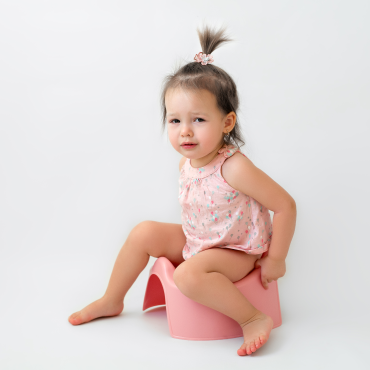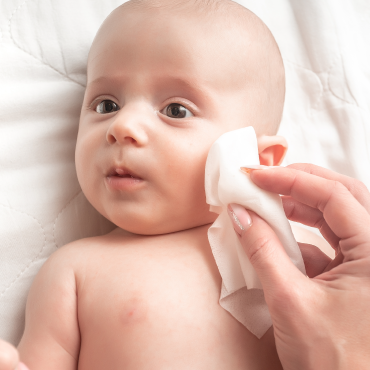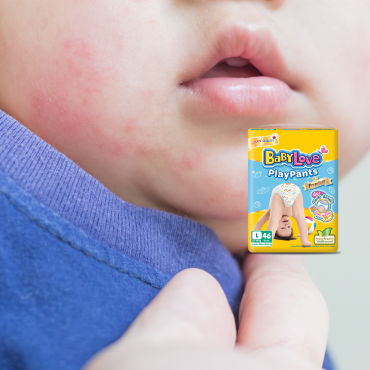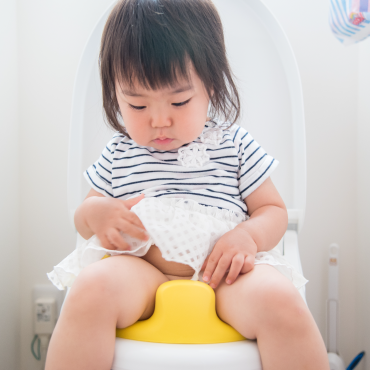Children aged between 1 and 3 years old usually experience slightly physical growth more than the first year, so they eat less due to little need of nutrients according to the increasing ages. Therefore, while children gain 5 or 6 kilograms in the first year age, they may gain around 2 kilograms a year after that. If parents realize their children nature, they will not become stressful and their expectation towards their little ones will decrease.
Nature of 1-3-year-old children
- The children will eat little or around one-fourth or no more than a half portion of adults. Their eating habit is unpredictable as children may eat a lot for a meal and little for another. Most of them often eat what they like, so parents must not expect that their children will have equal meals every day.
- When children are full, they will not be interested in eating and turn their head away from food or push a plate away. Parents should stop making them eat because children will resist eating later and eating problems will arise in the future. Children who reach the ages may be able to have meals by themselves, so they should eat with adults in order to learn from them.
- Some children often eat only what they like while others will try new things. Some may like a food one day and do not have it on another day. Others may eat only a particular kind of food repeatedly for a month and stop eating it abruptly in the following month.
Amount and characteristics of food for 1-3-year-old children
1. Your little ones need 1,000 kilo calories per day, so 5 complete and diverse kinds of food are required, namely rice, flour, sugar, vegetable, fruit and oil. Milk can be served as a supplement.
2. In one day, 4-5 meals should be provided to children, 3 of which are major while 2 are snacks. Even so, snacks should be healthy and must not be sweets or fried ones because those foods give children too much energy and make them fat.
3. Children should obtain 20-25 grams of protein a day or around 1.8 grams per a body kilogram. The protein should come from an egg per day or four per week, pork, fish, chicken and beans
4. 2-3 glasses of milk are useful (400-600 milliliters). If children are breastfed, mothers should continue.
Unless children drink powder milk, mothers should opt for the one for children of one year old or older or unsweetened UHT whole milk with full fat. Children can drink directly from a container or a glass.
5. 4-6 glasses of water or 1,000-1,500 milliliters of water are advisable.
6. Followings are some minerals children should obtain regularly :
- Calcium and phosphorus for teeth and bones can be found in milk and dairy products, so children should drink milk regularly
- Magnesium can be found in all green vegetable.
- Iron, necessary for enhancing hemoglobin in red blood cells can be found in beans and livers
7. Vitamins A, D, C and B are crucial for the children. They can be obtained from fresh fruit like banana, ripe papaya, orange, guava and tomatoes.
8. Children should have diversified types of food and should try new ones regularly. However, if they do not want to eat anything, parents should not make them, but they should try again after some time.
9. Food should not be extremely tasty as food that is too sweet, salty or sour will affect kidney’s functions and will make children fat.
10. Food texture should be soft and not too crispy, hard or sticky since children do not still have sufficiently strong teeth. Sticky meat like pork must be well boiled or chopped.
11. Size of food should not be too big or small and parents should not give children rounded-size food, especially food with 1-2 cm diameter because the food may get stuck in children’s throat or make them choke.
12. Children should avoid eating fermented, raw, medium rare, extremely tasty food as well as tea and coffee.
Article written by Dr. Piyarat Lertbannaphong, a specialized pediatrician.
Crated At 24/07/2019






















